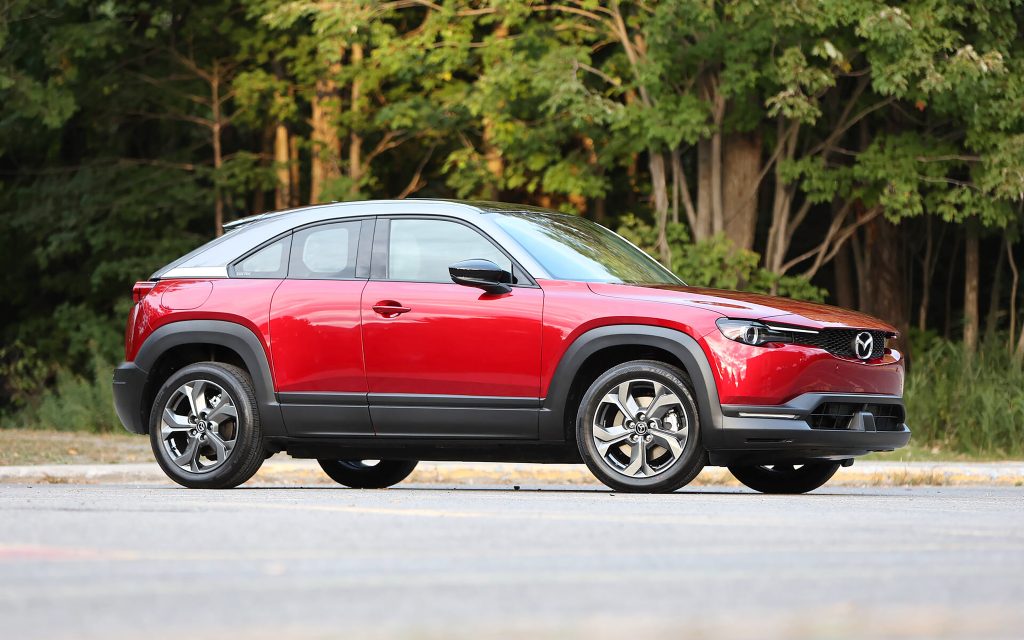By Veeno Dewan
If you are in the market for an EV in 2024, buyers now have more fantastic options and categories than ever. Newer models are more numerous than five years ago, come in more model types, and have longer-range driving capability—more interior space, quicker electric charging times, and options. However, EEV prices have yet to come down, demand is high, availability is low for some models, and they are still expensive compared to gasoline-powered vehicles. There is no doubt that EVs are the future wave, with Canadian drivers currently having EV sales at 10% of the auto market. The federal Canadian government announced their goal to have 100 percent of all new vehicles sold to be electric or hybrid by 2035, so the future looks bright as more consumers opt for the electric age.
Several new automakers are offering exclusive EV vehicles. Rivian and Lucid Air are among them. Fisker Ocean is a new entry in the EV sector. Vinfast, a Vietnamese company targeting Canada and offering a new CUV, is also enjoyable. Bollinger, a US automaker, offers a pricy, boxy-looking SUV called the B1 and B2. No doubt, other automakers will emerge in the coming years. It is indeed a fascinating time in the EV world.
Here is a summary of what is available from around 20 automakers who sell EVs in Canada:

Tesla – Tesla’s EV Supercharging network is a highlight, and it’s a system being adopted by other automakers for compatibility; the Tesla3 remains widespread, and the EV range on Teslas ranks amongst the best in class for now. A new Tesla Cyber truck full of technology will be on sale soon. The most exciting news is an upcoming Tesla Roadster two-seat coupe.

Ford – Ford’s sporty Mustang-E SUV has been highly successful. The new Ford F-150 Lightning, the all-electric version of Ford’s best-selling pickup truck, joins it. The truck can also be a portable power supply to power campsites, worksites, or even homes during a power outage. Look for new models soon.


Hyundai and Kia – Korean auto companies offer a wide range of EV vehicles, from hatchbacks to compact CUVs, sedans, and larger SUVs.
Hyundai’s Ionci 5 hatchback, the Ionic 6 sedan, and Kona offer extended-range models.
Kia has the immensely popular Niro, the very quick-performance EV9, and a new 7-seat EV9 SUV.

Nissan – Nissan was quick to the EV party with the Leaf Hatchback. It is value-packed and priced well. It may be phased out soon, but the excellent Nissan Arya CUV has a promising start, and new models are to follow.


Toyota and Lexus – Toyota recently released an all-electric bZ4X CUV, brimming with intelligent and intuitive technologies. The first-ever fully electric Lexus, the RZ 450e, has IRECT4 all-wheel drive and inspires with premium touches throughout the cabin. The company plans to release an ongoing version.


Honda, Mazda, and Subaru – These three automakers have only one all-EV vehicle in their ranges so far: Honda’s new Prologue CUV, Mazda’s CX-30, and Subaru’s new Solterra, which is designed uniquely for full all-road/all-weather capability. However, these companies say new EV offerings are on the horizon.
Volkswagen – The German automakerID4 EV is well established. It will soon be joined by the 2024 ID Buzz, a retro-styled people carrier that will seat up to seven people and be offered in rear-wheel and all-wheel drive models. New EV versions of the Golf and Tiguan are also rumored.

General Motors – GM will offer several EV-only offerings encompassing SUVs, CUVs, and trucks. The Chevrolet Bolt is now more CUV-inspired. The Chevrolet /GMC Sierra and Silverado trucks will have EV powerplants, as will the Chevrolet Equinox and Blazer SUVs. Cadillac will offer EV versions of its new luxury Celestiq and Lyriq.

EV Trucks – The 2024 Ford F-150 Lightning truck is already well established, along with the Rivian RIT; look for new EV-only trucks on sale, such as the new Chevrolet Silverado, GMC Sierra, and a new RAM Ev pickup. Tesla is also offering its new Cyber truck. One truck to look out for will be the new Hummer EV.


Luxury EVs – This is a growing sector with the upper tier Tesla, Porsche Taycan, Macan EVs, BMW i4, Mercedes eos and EQB, and the new Cadillac Lyriq and Celestiq. New automaker Rivian will offer a new SUV in addition to its pickup. At the same time, Lucid will have expensive Air sedans. Porsche has an electric Taycan sedan and will offer the small Macan SUV. BMW will market its I4 and introduce new variants like the i-Next. Mercedes-Benz is very aggressive with multiple EOS and EQB sedan offerings, and Audi has e-tron Q4 and Q8 EVS. Maserati will offer the new all-electric SUV, the Grecale Folgore, and the Quattroporte sedan. A fully electric version of the new Range Rover is also on the way, and it will debut in 2024. Meanwhile, Ferrari will release its first EV in 2025, with a new Bentley EV SUV on the cards for 2026/7.

New players in the field
There are new automakers who are offering exclusive EV-only vehicles. At the top end are the US-made Tesla Model, Rivian, and Lucid Air. The Fisker Ocean is a new entry in the middle of the EV sector. There is also Vinfast, a Vietnamese company targeting Canada and offering a new CUV. Also interesting is Bollinger, a US automaker offering pricy, boxy-looking SUVs called the B1 and B2. No doubt, other auto manufacturers will emerge in the coming years. It is indeed a mind-blowing time in the EV world.






